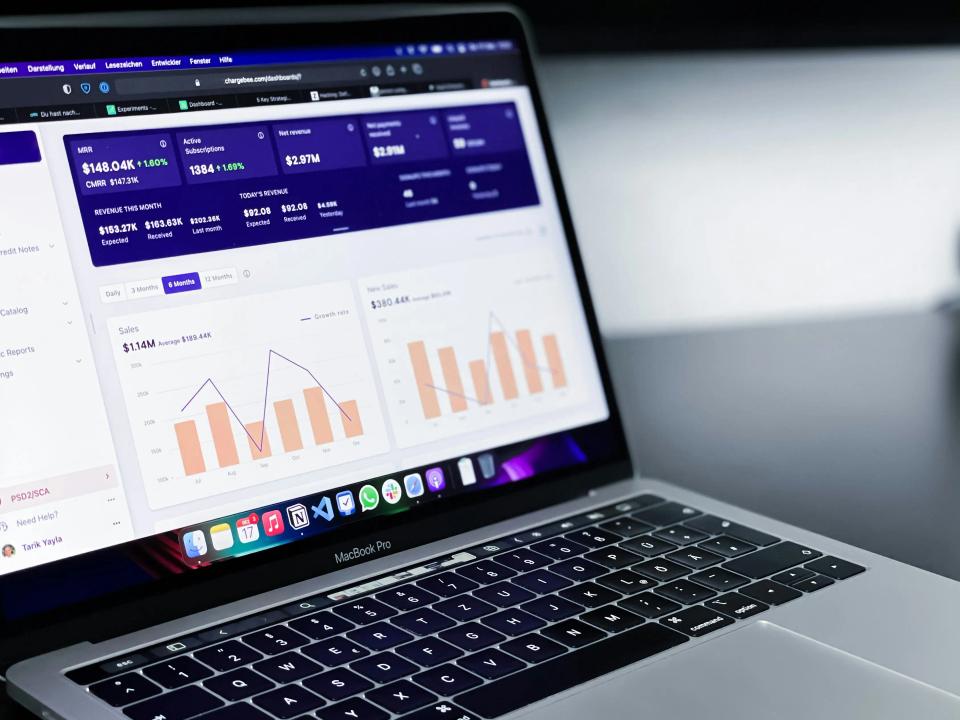Imagine this.
Your brand is a titan in New York. A household name, a market leader, a force of nature. But in Berlin? You don’t exist. Your website is a ghost, invisible to the millions of potential customers searching for exactly what you offer.
It’s a brutal truth many global brands face. You’ve poured millions into building a powerful, consistent international identity, only to find it means nothing to the local algorithms that control your fate. This is the core conflict: the battle between your global brand and the desperate need to earn local relevance.
This isn't just another article about SEO. This is a strategic framework for mastering "glocal" search—blending a cohesive global strategy with the hyper-relevant local execution needed to conquer regional search results. As a global agency with teams from Sweden to Mexico, this isn't theory for us; it's our daily mission.
The Foundation: Why a "One-Size-Fits-All" SEO Strategy Fails Internationally
You think your message is universal. But search intent is deeply cultural. What a user in Chicago searches for is not a simple translation of what a user in Tokyo needs.
A search for "best running shoes" in the US might be broad, but in Spain, a passionate trail runner is searching for zapatillas para correr trail montaña. This specificity, this local nuance, is where generic strategies die. According to a TransPerfect analysis, incorporating local keywords into your website's metadata is fundamental for search engines to recognize your geographic relevance.
Google’s algorithm is obsessed with local-first results. It wants to give its users the most relevant, geographically specific answer, whether that’s a Google Business Profile in the map pack or a link to a locally trusted blog. In fact, mobile searches containing phrases like "near me" have grown by over 500% in recent years, proving that proximity is paramount. Your generic .com page, no matter how authoritative, often can't compete with a site that speaks the local language and understands the local market.
Ultimately, this comes down to trust. To rank well in a new country, you must build local Expertise, Authoritativeness, and Trustworthiness (E-A-T). You have to prove your commitment to that specific region, demonstrating that you understand their needs and are a genuine part of their community. Without that local trust, your global authority remains locked behind a digital border.
The "Glocal" Framework: Centralized Strategy, Decentralized Execution
Winning internationally requires a paradox: iron-clad central control and radical local freedom. You need a framework that protects your brand while empowering local teams to connect authentically. This is the "glocal" model.
Define Your International URL Structure
This isn't just a technical detail; it's the architectural foundation of your global digital empire. Your choice here sends a powerful signal to search engines about your intentions. You have three primary paths, and the impact of this technical optimization on your SEO rankings cannot be overstated.
- ccTLDs (e.g.,
brand.de): This is the strongest possible signal of local commitment. It tells users and search engines you are serious about the German market. However, it requires managing separate domains, which can be complex and costly. - Subdomains (e.g.,
de.brand.com): This is a balanced approach. It's easier to set up than separate ccTLDs and still provides a clear, moderate signal of geographic targeting. - Subdirectories (e.g.,
brand.com/de): This is the easiest to manage from a technical SEO perspective, as it consolidates all your domain authority into one powerful domain. It's a great choice for brands wanting to expand efficiently.
Our recommendation? Use subdirectories for simplicity and authority consolidation unless you have the resources and strategic need to establish a completely separate country-specific entity, in which case a ccTLD is superior.
International Keyword Research: Beyond Translation
You cannot simply hand your English keyword list to a translation service and expect results. That’s a recipe for failure. True international keyword research is about decoding local intent, not just swapping words.
You must use local teams or native-speaking experts to uncover the vernacular, slang, and regional dialects that define how real people search. According to Setmore, effective local SEO keyword research involves using tools to evaluate search volume and competition for these hyper-local terms. This ensures you're targeting phrases people actually use, not just a corporate-approved translation.
The goal is to move beyond what your product is and focus on what problem it solves for a customer in that specific culture. This requires a deep dive into their unique pain points and search behaviors.
Establish Global Brand Guidelines for Local SEO
This is where you balance control and freedom. The global marketing team must create a master playbook. This document defines the core brand voice, visual identity, non-negotiable messaging, and universal technical SEO standards.
Within that strong framework, you empower your local teams. Give them the autonomy to adapt content, create locally relevant promotions, and conduct outreach to regional influencers. They know the market best; your job is to give them the tools and boundaries to succeed without diluting the global brand they represent.
Actionable On-Page Tactics for Local Resonance
Once your framework is in place, it's time to execute. Your on-page strategy must scream local relevance from every pixel.
Geo-Targeted Landing Pages
A generic "Services" page won't cut it. You need to create dedicated, unique landing pages for each target country, region, or major city. As Search Engine Journal points out, these unique, geo-targeted landing pages are the cornerstone of any multi-location strategy.
This means optimizing every element for the local audience. Your title tags, meta descriptions, and H1s must include local keywords, such as "Web Design Services in Stockholm" instead of a generic global equivalent. This tells both users and Google that this page is specifically for them.
These pages are your digital storefronts in each new market. They must feel native, addressing local pain points and showcasing your commitment to that specific community.
Content Localization (Not Just Translation)
Localization goes far deeper than changing the language. It's about cultural adaptation. A staggering 75% of consumers prefer to buy products from websites in their native language, and 60% rarely or never buy from English-only sites.
Adapt your case studies and testimonials to feature local clients. Write blog posts that address uniquely local challenges or holidays. Use imagery that reflects the local population and environment, not just generic stock photos.
Most importantly, ensure all practical information is localized. This includes displaying prices in the local currency, using local date and time formats, and providing a local phone number and address. These details build immense trust and reduce friction for potential customers.
Implementing Hreflang Tags
This is a critical technical signal that prevents you from being penalized for duplicate content. Hreflang tags are simple snippets of code that tell Google which version of a page to show to a user based on their language and location.
For example, this tag tells Google that there is a German-language version of this page located at https://brand.com/de/:
<link rel="alternate" hreflang="de-DE" href="https://brand.com/de/" />
Implementing these tags correctly across your site ensures that a user in Germany sees your German page, and a user in France sees your French page. It’s a simple instruction that solves a massive international SEO headache, and mastering these advanced technical SEO tactics is crucial for performance.
Leveraging LocalBusiness Schema Markup
Schema markup is a form of structured data that you add to your website's code to help search engines understand your content better. For local SEO, LocalBusiness schema is non-negotiable.
By adding this markup to your location pages, you are spoon-feeding Google the exact information it needs to display rich results in search. You can clearly define your business name, address, phone number (NAP), opening hours, and even customer reviews.
This makes it easier for Google to trust your information and feature your business prominently in the local pack and map results. It’s one of the most powerful ways to signal your physical presence and relevance in a specific area.
Powerful Off-Page Strategies to Build Local Authority
What happens off your website is just as important as what happens on it. Building local authority requires a dedicated, ground-up effort in each market you enter.
Mastering Google Business Profile (GBP) at Scale
Your Google Business Profile is your digital front door in every community. It is arguably the single most important factor for local search visibility. You must create and fully optimize a separate GBP listing for each physical location.
This isn't a "set it and forget it" task. A winning strategy involves consistently using localized Google Posts to announce events or promotions, responding to every review in the local language, and uploading high-quality, location-specific photos. According to Moz's foundational guide, a well-managed Google Business Profile is essential for local SEO, as it directly influences your visibility in the highly coveted map pack.
For brands with dozens or hundreds of locations, you need a scalable system. Our guide on optimizing local SEO for multi-location businesses provides the tactical steps needed to manage this process effectively.
Building a Local Link Profile
Your global link-building strategy, focused on high-authority domains, is still valuable. However, for local SEO, you must also build a portfolio of links from locally relevant sources. A link from the local chamber of commerce or a popular city blog can be more powerful for local rankings than a link from a global publication.
Shift your mindset to earning links that demonstrate community involvement. This includes sponsoring local events, partnering with neighboring non-profits, and getting featured in local news outlets. These links send powerful trust signals to Google that your brand is an active and respected member of that specific community.
Local Citations and Directory Management
A citation is any online mention of your business's Name, Address, and Phone number (NAP). Ensuring your NAP is 100% consistent across all relevant, country-specific online directories is a foundational trust signal for search engines.
Inconsistencies—like using "St." on one directory and "Street" on another—can erode Google's confidence in your location data and harm your rankings. Use a citation management tool or service to audit your existing listings and build new ones on high-quality local directories. This meticulous attention to detail proves your legitimacy and solidifies your local presence.
Conclusion: Think Global, Act Local, Rank Everywhere
The path to international search dominance is not paved with a single, monolithic strategy. It’s built by synthesizing a powerful global brand foundation with agile, authentic, and relentless local execution. The goal is to become one brand with many distinct, resonant local voices.
Success lies in respecting the culture, understanding the intent, and earning the trust of each community you wish to serve. Stop broadcasting a global message and start having local conversations.
- Audit your current international URL structure. Make a strategic decision that aligns with your resources and long-term goals.
- Invest in true keyword localization. Go beyond translation to uncover how real customers search in each market.
- Empower your local teams. Give them a global playbook and the freedom to win the local game.
- Optimize a Google Business Profile for every key location. Treat it as your most important local marketing asset.
Balancing a global vision with local SEO is a complex task. At CaptivateClick, our international team of strategists, designers, and SEO experts has the firsthand experience to build a digital presence that captivates customers in every market. Ready to scale your local relevance? Schedule your free strategy session with us today.






























































